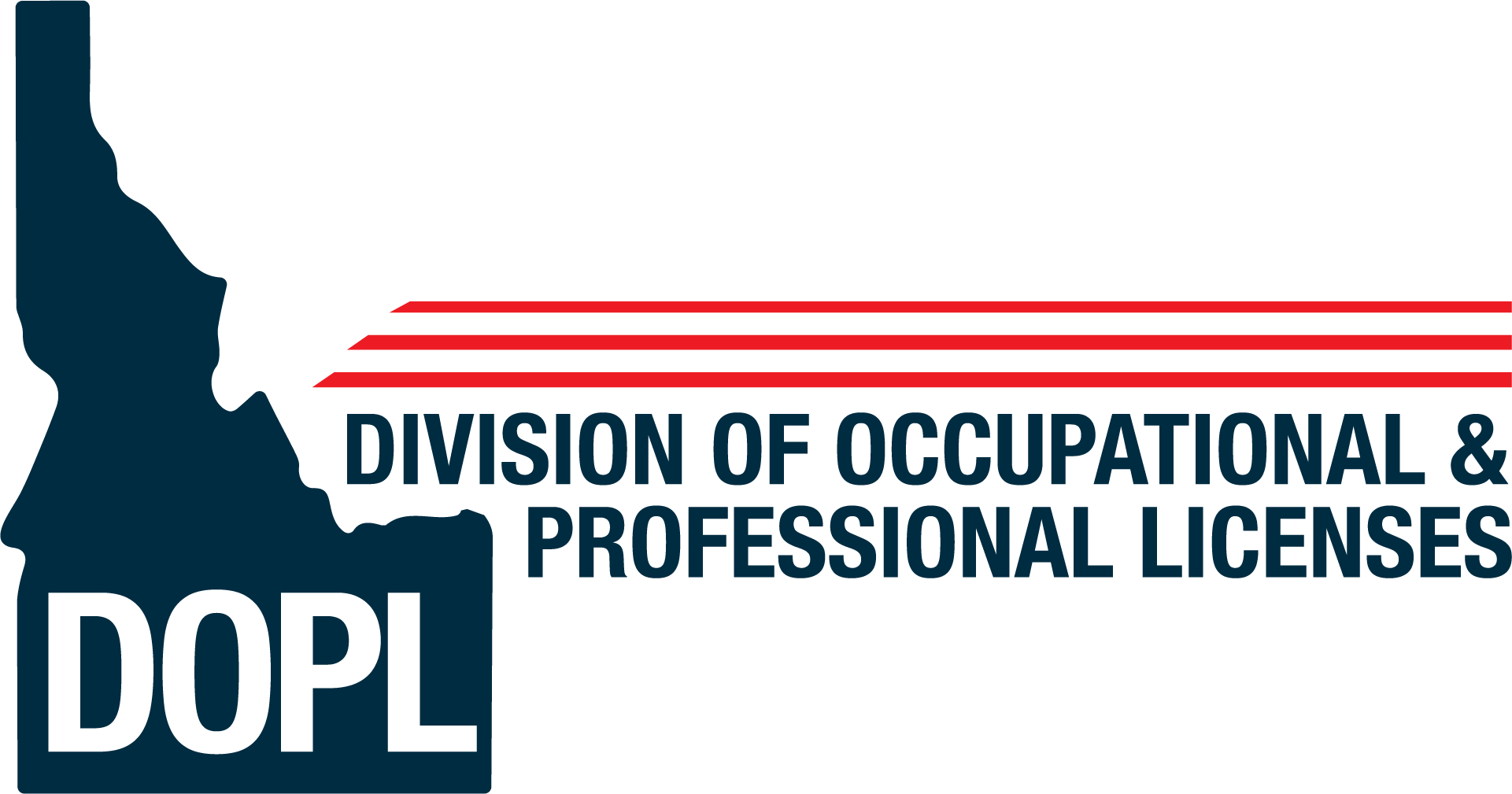Welcome to the Board of Professional Engineers and Land Surveyors
Please contact us with any questions via email IPELS-Licensing@dopl.idaho.gov or phone (208) 334-3233.
Additional Board Information
| Name | Position | Expiration | Original Appointment |
|---|---|---|---|
| Glenn K. Bennett | Land Surveyor | May 24, 2024 | June 2, 2014 |
| Raymond J. Watkins | Engineer Member | May 24, 2025 | September 3, 2015 |
| Richard Jacobson | Engineer Member | May 24, 2024 | November 26, 2019 |
| Tom Ruby | Land Surveyor | May 24, 2025 | June 1, 2020 |
| Keith C Brooks | Engineer Member | May 24, 2026 | October 19, 2021 |
| Sondra M Miller | Engineer Member | May 24, 2027 | August 9, 2022 |
| Wyatt B Johnson | Public Member | May 24, 2027 | May 1, 2023 |
Related Links:
ISU’s 30 credit Surveying and Geomatics course
- Idaho’s QBS Council http://idahoqbs.com/
- ACEC of Idaho (ACEC) http://www.acecofidaho.org/
- American Institute of Architects-Idaho (AIA) https://aiaidaho.com/
- Idaho Society of Professional Engineers (ISPE) http://www.idahospe.org/
- Idaho Society of Professional Land Surveyors (ISPLS) http://www.idahospls.org/
- Structural Engineers Association of Idaho (SEAI) https://seaidaho.org
- Idaho’s Local Highway Technical Assistance Council (LHTAC) http://lhtac.org/
- ABET.org is the Acceditation Organization for acceptable engineering degree programs. Find a program at http://main.abet.org/aps/Accreditedprogramsearch.aspx and select ONLY 4 yr or Master’s degrees and only those which say they are accredited by the Engineering Accreditation Commission (EAC) (NOT those accredited by ABET’s ETAC, CAC or ASAC).
Board Meeting Calendar
09
May
9:00 AM – 5:00 PM
PROFESSIONAL ENGINEERS AND PROFESSIONAL LAND SURVEYORS: BOARD MEETING
Thursday
25
Jul
9:00 AM – 5:00 PM
PROFESSIONAL ENGINEERS AND PROFESSIONAL LAND SURVEYORS: BOARD MEETING
Thursday
No event found!

